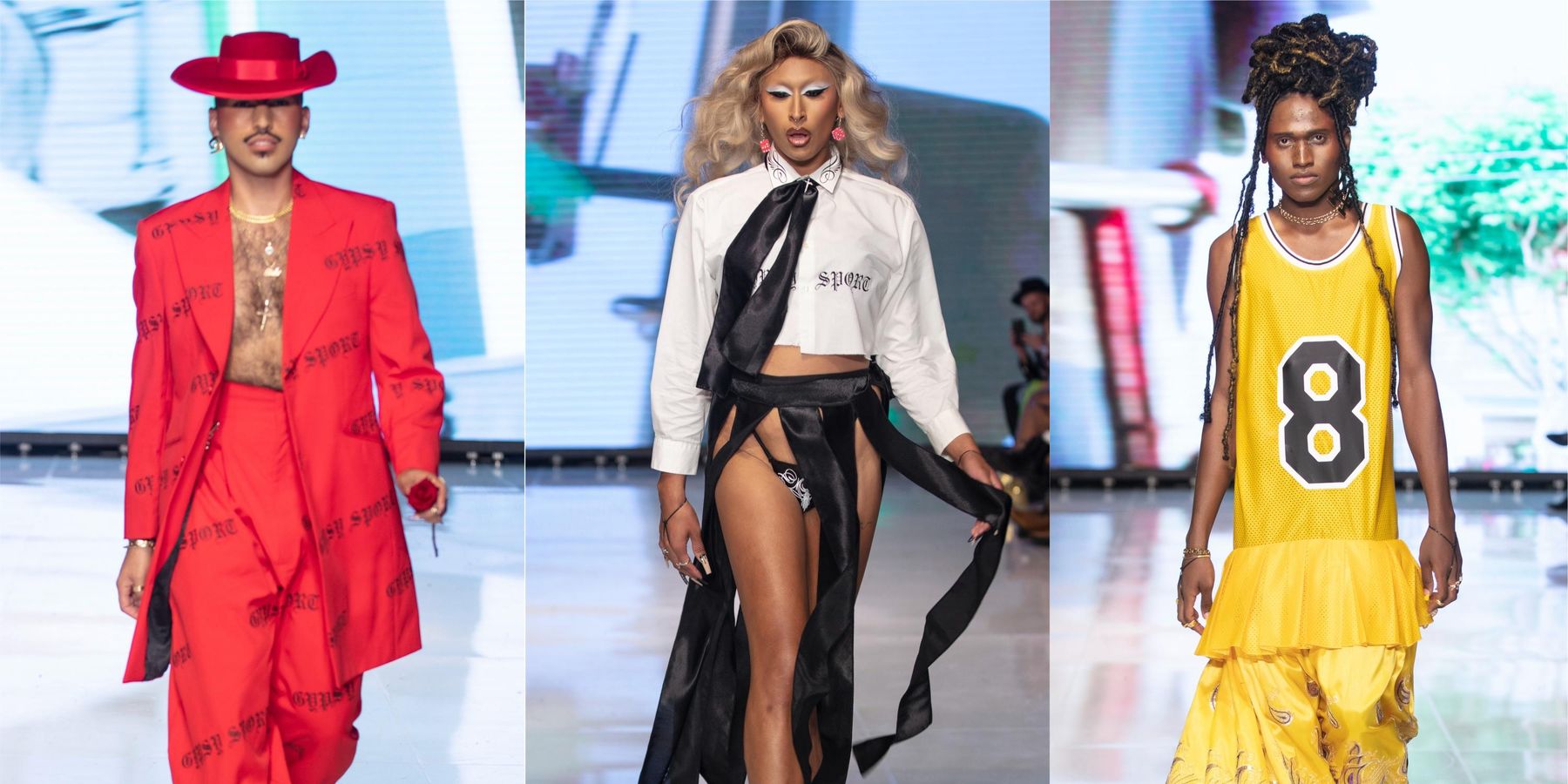
Fashion
Gypsy Sport's LA Homecoming Was Chicano Culture Personified
by Jamila Stewart
11 October 2021

Gypsy Sport's Spring 2022 show didn't open with pumped-up techno sounds or a vague, airy soundtrack. Instead, "I Got 5 On It" from Oakland rap duo Luniz let the audience know exactly what they were in for. The 1995 hit remains a Los Angeles classic and, in many ways, it mirrors the return of designer Rio Uribe (and his brand) back to the city.
Set on the rooftop of the Petersen Automotive Museum, the crowd cheered incessantly while shouting the names of models—familiar faces in LA's Black and brown creative communities—as they hit the runway, many of whom broke out a vogue dance mid-walk. The entire spectacle was electric—invigorating, really. Most of all, it was harmonizing.
Uribe had been away from his LA Koreatown home for quite some time, launching his brand in New York in 2014 after a stint at Balenciaga. Returning back nearly two years ago, he was, until now, unable to hold a live fashion show due to the pandemic.
"It felt like a huge homecoming," Uribe told PAPER backstage. "You know when you're away from your family for a long time and you finally come back? This show was for my family, for my community, for LA, and I wanted them to see themselves in the clothes, in the models, and in the music."
Mexican puppet master Cain Carias opened the show, followed by a twinning "gangster marionette" (named El Triste) in gold balloon pants, a vest and Nike Cortez sneakers. "I wanted to showcase someone from Mexico who may not have all of the resources in the world, but can still bring joy," Uribe said of his local muses and nontraditional cast. "That's the people I see in my world. I'm like, 'Why aren't you guys on the runways and billboards?'"
Uribe thoughtfully brought the essence of Latinx queer culture to life. An influx of red, blue and black sequins were an ode to Mexican-American actors of old Hollywood. Rosaries illustrated a widespread Catholic upbringing. "A lot of us have decolonized, or left our religion behind, but we relate so much to the iconography of religion," Uribe says.
The youthful, cultural style of dress was depicted all the way down to the tall socks some models wore (one with a vinyl skirt and sequin-embellished blazer, for instance). "We all know what that is," Uribe laughed about the socks, one of the many elements of a quintessential cholo get up. Alongside those references, the brand zeroed in on its unisex stance – mini skirts and cutout dresses were off limits to none.
In its entirety, the show wasn't actually a representation or a depiction of Chicano culture. It was Chicano culture. "Chicano culture is me," Uribe says. "When I moved back to LA, I remembered and connected with my roots and I realized how Chicano I actually am. I realized why I design a certain way, and why I'm so attracted to people of color."
Uribe says this collection may be his most wearable yet, with a focus on functionality and practicality, but that's not the only area the brand shows evolution. It's the celebration of identity in a heightened sense that's most poignant. "It's not over," Uribe says. "This was such a big inspiration pull for me, and I feel like my next few collections are going to be in the same vein.
Photography: Manny Llanura